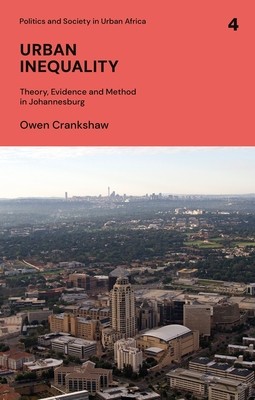
- We will send in 10–14 business days.
- Author: Owen Crankshaw
- Publisher: Bloomsbury Publishing PLC
- Year: 2022
- Pages: 232
- ISBN-10: 1786998947
- ISBN-13: 9781786998941
- Format: 15.6 x 23.4 x 1.4 cm, kieti viršeliai
- Language: English
- SAVE -10% with code: EXTRA
Reviews
Description
Based on new evidence that challenges existing theories of urban inequality, Crankshaw argues that the changing pattern of earnings and occupational inequality in Johannesburg is better described by the professionalism of employment alongside high-levels of chronic unemployment.
Central to this examination is that the social polarisation hypothesis, which is accepted by many, is simply wrong in the case of Johannesburg. Ultimately, Crankshaw posits that the post-Fordist, post-apartheid period is characterised by a completely new division of labour that has caused new forms of racial inequality. That racial inequality in the post-apartheid period is not the result of the persistence of apartheid-era causes, but is the result of new causes that have interacted with the historical effects of apartheid to produce new patterns of racial inequality.
EXTRA 10 % discount with code: EXTRA
The promotion ends in 22d.07:31:38
The discount code is valid when purchasing from 10 €. Discounts do not stack.
- Author: Owen Crankshaw
- Publisher: Bloomsbury Publishing PLC
- Year: 2022
- Pages: 232
- ISBN-10: 1786998947
- ISBN-13: 9781786998941
- Format: 15.6 x 23.4 x 1.4 cm, kieti viršeliai
- Language: English English
Based on new evidence that challenges existing theories of urban inequality, Crankshaw argues that the changing pattern of earnings and occupational inequality in Johannesburg is better described by the professionalism of employment alongside high-levels of chronic unemployment.
Central to this examination is that the social polarisation hypothesis, which is accepted by many, is simply wrong in the case of Johannesburg. Ultimately, Crankshaw posits that the post-Fordist, post-apartheid period is characterised by a completely new division of labour that has caused new forms of racial inequality. That racial inequality in the post-apartheid period is not the result of the persistence of apartheid-era causes, but is the result of new causes that have interacted with the historical effects of apartheid to produce new patterns of racial inequality.


Reviews